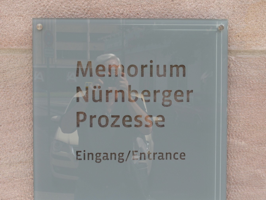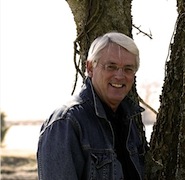
This is a plaque at the entrance of the Palace of Justice in Nuremberg. The Palace is the site of the historic Nuremberg Trials at the conclusion of WWII.
Germany is an economic miracle. There’s no other way to describe it. Think of it. In the last ninety years, Germany lost two wars, sixteen per cent of their population was killed as a result of the wars, their industrial base was decimated, they became a pariah in the eyes of the world, their national identity questioned, and were occupied by the armies of the countries who had defeated them. Many of their leaders were tried, convicted, and either executed or imprisoned. They were a pawn of the cold war and lived as a divided county for thirty years and then endured the pains of unification. And yet….
Germany is number fourteen in population at about eighty two million, but has a nominal GDP of $3.3 trillion which is fourth in the world. They are number two in exports with $1.33 trillion, which believe it or not, is more than we export from the US. Germany has a well deserved reputation for their high quality products in a wide range of industries from automotive to optics to high tech. Beyond economic factors, Germany has a number of other qualities including a beautiful topography and robust supply of natural resources which make it an attractive place for its citizens, trading partners, and tourists alike. Food is not one of them…unless you like sausage. It has a tradition of education and the arts equal to any other country in the world and a legacy of artists, writers, and philosophers that is universally recognized. And yet…
As I strolled around Frankfurt in the comforting light rain, I couldn’t help but think what it must have looked like sixty five years ago. As I mentioned in a previous blog, most of central Frankfurt was more or less obliterated by Allied bombing in 1944 which also killed about five thousand of its citizens. One wonders, whether that would have been considered a criminal act had we not won the war. More on this later.
Cicero said that an unjust peace is better than a just war, and in the abstract, I would agree. It just doesn’t seem to apply to what Hitler instigated in 1939. I, like you, studied the war in my school days, and since, I’ve read more than a little about WWII, but until this trip, and this time in my life, I never tried to understand or articulate the principles that motivated Hitler, the National Socialist Party, and the Germans to do what they did. Back to the Nazis….the actual party name was translated as the National Socialist Democratic Workers Party or NSDAP. Hmmm? Why is it that the most tyrannical of political institutions always have “Democratic” or “Workers” in the name? Looks like they would work in “Republican” every now and then. I’ve searched the literature for a succinct articulation of the raison d’etre for Nazism, and I’ve come up with my own short list.
It goes like this:
Aryans as the Master Race: Alfred Rosenburg, the putative theorist of the Nazi Party, espoused the theory that Aryans derived from Atlantis as a warrior people living on the Germanic plane and were direct ancestors of the early Germanic tribes. Hitler, writing in Mein Kamph, opined that it was essential to keep the Aryan strain pure, else it would be diluted with the impure blood of the darker races of Southern Europe. He also noted that it was necessary to guard against allowing weak members of the Aryan race to propagate for the same reason. There’s lots more of this bs, but it’s so weird that I refuse to even mention it.
Anti-Semitism: This is way over my head and has pretty much been wrestled to ground by far more nimble minds than mine. I will only say that the seeds of Hitler’s virulent form of anti-Semitism which ultimately led him to his “final solution” were sewn during his stay in Vienna starting in 1907. Vienna was the hot bed of anti-Semitic thought in those days, and he clearly drank the cool-aid while there. He also came later to the view that European Jews, and German Jews, in particular, were to blame for the fall of the Weimar Republic.
Lebensraum: A literal translation would be habitat or living space. As Hitler demonstrated beginning in 1939, the Nazi policy would be to kill, deport or enslave Polish, Russian and other Slavic populations, who were inferior, and repopulate the lands with Germanic peoples. In short, he needed more land, particularly lands to the east, for Germany to grow and prosper as the master race and natural rulers of the world.
It was for these objectives that Germany ignored the Treaty of Versailles, trampled the Mutual Non-Agression Pact with Russia, and ultimately pursued a strategy which resulted in the death of between sixty and seventy million people in Europe, including almost ten million of his own people. You know the rest of the story. The allies defeated Germany, Hitler killed himself, we tried and convicted many of the leading Nazi figures at Nuremberg, and Germany rebuilt itself.
As I traveled on through Germany to Nuremberg and finally to Munich, I continued to wrestle with the contradiction of the Germany of WWII and now. The duality of Germany’s nature still eluded me. Many would say that the rise of German militarism in the 1930’s was motivated by many complex factors including the demise of the Weimar Republic, but their ultimate behavior remains inexplicable. Telford Taylor, assistant chief prosecutor and one of the leading figures of the Nuremberg Trials , said, “…the gas chambers, mountains of corpses, human lamp shades, shrunken skulls, freezing experiments and bank vaults filled with gold teeth…were the poisoned fruit of the tree of German militarism.”
I guess it’s possible to understand the killing of one or two or even a thousand, but sixty thousand, or six million or sixty million defies the imagination. The Nazi atrocities were so monstrous, so enormous, so outside the realm of human experience that it’s hard to believe they happened, much less comprehend why they happened, even when confronted with the hard evidence. But it’s real. They did those things and more.
Now as I walk through the large outdoor market near the Marienplatz in Munich, I can’t help but wonder if the group of twenty something young men could have been in the SA or Gestapo, or if the prosperous middle-aged man walking by could have conducted the medical experiments for which the Nazis became infamous, or if the street sweeper might have been a guard at one of the concentration camps. I feel some guilt in having such thoughts, and my mind wanders to the bit of religious dogma that first gave me pause with Christianity. In Exodus is written of “…visiting the iniquity of the fathers on the children and the children’s children and on to the third and fourth generation”. In that I refused to accept this biblical admonition, I suspect, then, to blame succeeding generations of Germans for acts committed by their fathers and fathers’ fathers, makes no sense either. I certainly cannot lay blame on my wife for the institution of slavery because her ancestors were slaveholders as were many, if not most, of the early settlers of Texas.
Winston Churchill said that history is written by the victors and while true, I much prefer the admonition of Maya Angelou who wrote, “History, despite its wrenching pain, cannot be un-lived, but if faced with courage, need not be lived again”.
Perhaps we will have the courage to not need to relive the history of Nazi Germany again.
I liked the Germany a found on this trip, perhaps it was because I stopped trying to relive history or it may be because I had my eyes and mind wide open.


